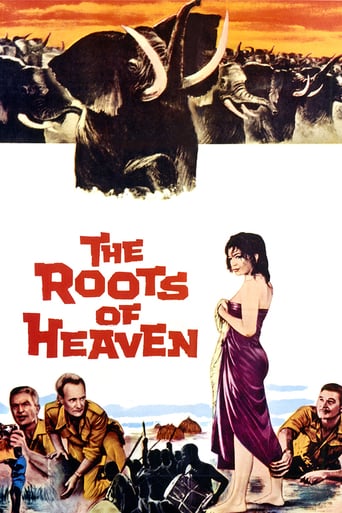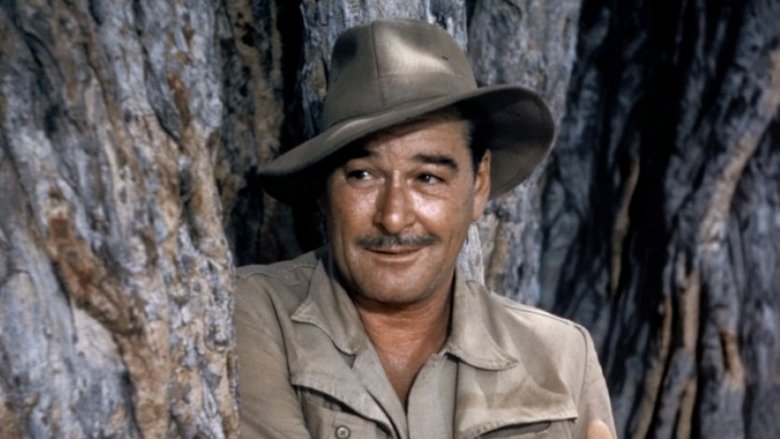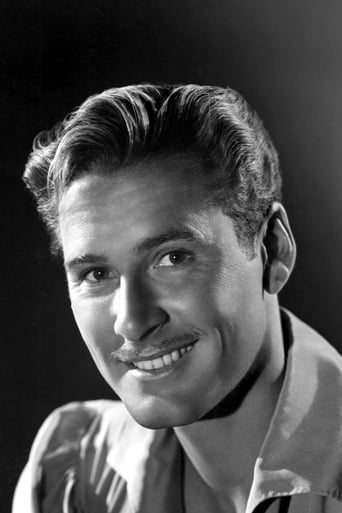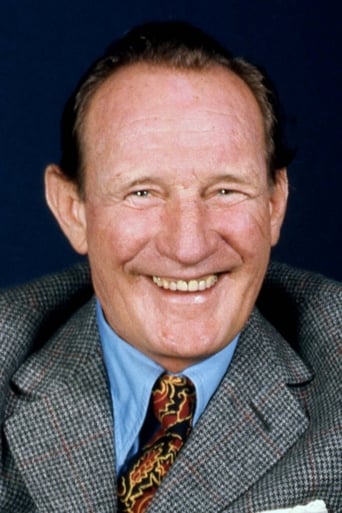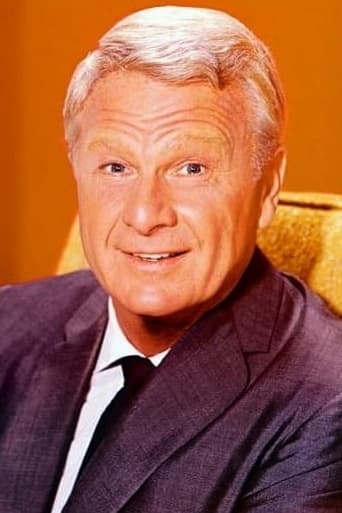The Roots of Heaven (1958)
In Fort Lamy, French Equitorial Africa, idealist Morel launches a one-man campaign to preserve the African elephant from extinction, which he sees as the last remaining "roots of Heaven." At first, he finds only support from Minna, hostess of the town's only night club, who is in love with him, and a derelict ex-British Army Major, Forsythe. His crusade gains momentum and he is soon surrounded by an odd assortment of characters: Cy Sedgewick, an American TV commentator who becomes impressed and rallies world-wide support; a U.S. photographer, Abe Fields, who is sent to do a picture story on Morel and stays on to follow his ideals; Saint Denis, a government aide ordered to stop Morel; Orsini, a professional ivory hunter whose vested interests aren't the same as Morel's; and Waitari, leader of a Pan-African movement who follows Morel only for the personal good it will do his own campaign.
Watch Trailer
Cast


Reviews
Just what I expected
good back-story, and good acting
There is, somehow, an interesting story here, as well as some good acting. There are also some good scenes
The film never slows down or bores, plunging from one harrowing sequence to the next.
Good film that had several inconvenient and misfortunes , as the cast and crew suffered temperatures would routinely reach 134 degrees in the day and 95 degrees at night , as the 130 people had 920 sick calls during the shooting . This is an exciting story about Morel's adventures who accompanied by a motley group carry out a real denounce against the massacre of the elephants . Morel lives in Africa and can not stand quiet on this slaughter and he , then , undertakes a dangerous travel on protection of elephants . Morel (Trevor Howard , though James Mason was considered for the role , also William Holden was originally cast with top billing ; however, he later pulled out and was replaced) starts to fight to prohibit this hunt . As he begins , nobody supports him , but thanks to an American Radio newsreader called Sedgwick (Orson Welles , his foe was normally $15,000 but he did it gratis in order to repay Darryl F. Zanuck for helping Welles find the funds to complete Otelo) he becomes a famous person . Some people come to help him , such as : the drunk Forsythe (Errol Flynn , who was then given top billing, even though Howard had the lead role, this was Errol Flynn's last major film before his death the following year others try to use him) , the magazine photographer Abe Fields (Eddie Albert , who developed an almost fatal case of sunstroke) and his lover Minna (Juliette Gréco) , among others . This thought-provoking as well as interesting adventure movie contains a real condemnation of violence and intolerance in which an agreeable character attempts to awake the world's consciousness , being interspersed with a lot of political issues in those times of the French/British colonialism in Africa . It's a story of losers , brave and valiant roles , mixed with revolutionary interests . Nice acting by Trevor Howard as a man committed to nature and especially against indiscriminate ivory trade , determined at whatever cost to avoid the killing of elephants taking place in a French colony . In addition , the strange beauty Juliette Greco , French singer and actress , ¨Protegee¨ of Darryl F. Zanuck, who put her in a number of films in the late 50s-early 60s . Remaining cast is generally quite good , giving fantastic jobs , plenty of great actors who suffered from the heat , malaria and other tropical diseases , as temperatures during filming reached over 130 degrees in the daytime and only got down to 95 at night . As terrible heat and sickness took their toll on the cast and crew . There stand out the followings : Eddie Albert , Paul Lukas , Herbert Lom , Grégoire Aslan , Jacques Marin , and , of course , Orson Welles included . However , Errol Flynn's alcoholism had become a round-the-clock problem, and he was frequently at odds with John Huston . In his autobiography titled ¨My Wicked, Wicked Ways", Errol Flynn wrote that he enjoyed making this film more than any other. Colorful photography in CinemaScope by Oswald Morris is spectacular and insurmountable , it was mostly made on location in Africa over five months , in the Belgian Congo and Tchad in the Northern Cameroons, where the elephants were located . As the cast and crew were in French Equatorial Africa for 6 months making the movie , and on some days it would be a four hour drive to the location and back , as they vowed never to return . It displays an emotive and sensitive musical score by the classic British composer Malcolm Arnold . The motion picture was well directed by John Huston , though he cited this film as an example of how some of the worst shoots can result in the worst films . Its tense filmmaking makes this crackerjack entertainment . The picture was made in a good time in the late 50s , 60s and 70s when Huston reappeared as a director of quality with The misfits (1961) , Freud (1962) , The List of Adrian Messenger (1963) , Fat City, (1972) , The man who would be king (1975) and Wise blood (1979). He ended his career on a high note with Under volcano (1984), Honor of Prizzi (1985) and Dublineses (1987) . Rating : 6.5/10 , this is an acceptable John Huston film , despite failing at box office , a model of his kind , definitely a must see if you are aficionado to adventure films
A very odd film like no other, with a startlingly modern and timeless argument and therefore conveying an urgent message for all times. Romain Gary, married to Jean Seberg, was a superior genius, and all films made on his books are on a special level of quality and interest. The argument is what already Walt Disney dared to introduce in "Bambi" - the outrageous abuse of nature by man.The character Morel, aptly played by Trevor Howard, who must have found this sort of character a special treat, takes a stand against man for the elephants and actually starts a crusade against poachers. He is supported by Juliette Greco, who gives the film a very fitting female extra dimension. Orson Welles is perfect as usual in a particularly revealing character of a parody on Americanism, like also Eddie Albert as the final photographer, while Herbert Lom makes a perfect villain. The final touch is Errol Flynn in his last bow as a failed soldier who nevertheless in spite of his exaggerated and pathetic alcoholism succeeds in ending honourably. This is the only film he mentions in his autobiography as a film to be proud of.Objections have been raised against John Huston's direction. The rhythm of the film is very slow, as focus is more on the important dialogue than on any action, but nevertheless he succeeds in sustaining a constant suspense throughout the film although very little happens. In fact, the story in its wild but monotonous settings never ceases to came up with new surprises.It didn't cause much attention in its day, although its problems should have been of concern to all humanity even then almost 60 years ago, few really understood it, since it was so far ahead of its time, but the story with its argument is a compelling work of genius which today is more imminent in its message than ever, and John Huston definitely secured the message.
It's really amazing that the film crew went to so much trouble to make this movie. After all, they went to the hellishly hot and rather primitive country of French Equatorial Africa and filmed it on location- -and because of this the film looks great. Yet, inexplicably, at the same time the movie looks so incomplete and sloppy at times-- particularly when it came to many of the characters. As a result, the film's great message is muted and far less effective.When the film begins, a hunter has already killed four elephants and is about to kill more when he is attacked and beaten up by Morel (Trevor Howard). It seems that Morel is outraged by the wholesale slaughter of African animals (in particular, the elephants) and he's sick of sitting back and doing nothing. Soon, he goes to see the governor and begins circulating a petition to stop the slaughter--mostly to no effect. So, he and a few followers decide to take the law into their own hands. They burn ivory warehouses and attack hunters--shooting them in the butt! And, in one of the few funny scenes in the movie, they storm a ritzy party and deliver a well-deserved spanking to a society dame who delights in talking about all the elephants she's slaughtered.All this sounds very timely and important, right? Well, yes...but the film manages to take a great idea and make the least of it. While Trevor Howard is fine in the lead (though he's billed third!), many of the other characters are underdeveloped and wasted. Instead of seeming like real folks, they seem like they are doing a walk-on--like many celebrities that appear and disappear in a Muppet film! Flynn got top billing though he was barely in the film at all. And, when he was on camera, he pretty much played himself--a dying alcoholic (he died a year after this film was made). Orson Welles is an interesting character-- yet his change of heart from hunter to conservationist seemed bizarre and confusing--again because his part was severely under-written. Eddie Albert appears out of no where late in the film--and has a few good moments but is otherwise quite out of place. And, the same can be said about MOST of the rest of the cast! You would have thought that the writer, director and producer would have noticed this big problem. With better writing and directing, the film SHOULD have earned an 8 or 9. Instead, it's just an overly long and forgettable film.By the way, I found this film of particular interest because I just got back from a photo safari in South Africa. In my trips to this country, I was surprised how few animals remain and how those that do are confined mostly to game reserves. Also, while the elephants are the subject of "The Roots of Heaven", the biggest problems today are the poaching of the rhinos and the near-extinction of species such as the African Wild Dog. My advice is go soon to visit Africa soon as some of these animals simply might not be there in the near future.
"Turgid philosophising"... "raddled Flynn"... no-one seemed to have a good word for this film, known chiefly for the number and variety of ailments suffered during its filming, and I certainly wasn't expecting much.Nobody told me "The Roots of Heaven" could be funny.Nobody told me the script was ironic and self-aware, knowing what to say and what to leave unspoken and when to wear its passion on its sleeve with the straightforward and very English eccentricity of its leading character; tinged with idealism, with heroism, and with cynicism alike. No-one ever mentioned, oddly enough, that there were even any environmentalists in the 1950s -- with uncannily accurate prescience, the plot even ties in the anti-nuclear cause. Greenpeace would have had a retrospective field day! And as for Flynn, he is having the time of his life stealing every scene he is in, whether with a quizzical eyebrow or a moment of sudden intense sympathy; the part is a gift, but he makes it something more, with the old expressiveness that always underpinned the laughter and heroics of his days as Warner Brothers' leading man. His late-career performance in "The Sun Also Rises" (which, for my money, really is turgid philosophical stuff) has been proclaimed as 'Oscar-worthy' by those eager to prove he had straight acting talent, but to my mind he shows greater depths here.Trevor Howard is the undoubted star, carrying much of the film single-handed. He is superbly convincing in the linchpin role of the Englishman who sets out on an unfashionable one-man crusade, and -- in a tale whose wry sensibilities would not be out of place at Ealing Studios -- finds himself inadvertently the victim of human nature's instinct both to canonise and to desecrate. The character has convictions, but he is neither unworldly nor a fool, and Howard makes us believe against the odds that this unassuming type can change people. His performance is absolutely central to the film's credibility, and he makes Morel not only believable but likable.The main flaws of which I was aware are the way that several strands seem to disappear abruptly unexplained at the ending (what of all those journalists who were about to arrive? What of the American's photographs, surely valuable evidence?) and a handful of blue-screen shots against poorer-quality backgrounds that are very obvious when viewed at cinema scale -- it might have been better to have used quick cuts back and forth between the characters and the action, rather than attempting to project them into the picture.So far as the overall standard of the film was concerned, however, I was extremely favourably surprised; I've seen several turgid, would-be meaningful African epics, and this certainly isn't one of them. Intelligent, humorous, lightly ironic, but also genuinely stirring and mythical, the end product may have disappointed John Huston, but it was far better than I had been given -- even by the cinema's own programming material! -- to expect.

